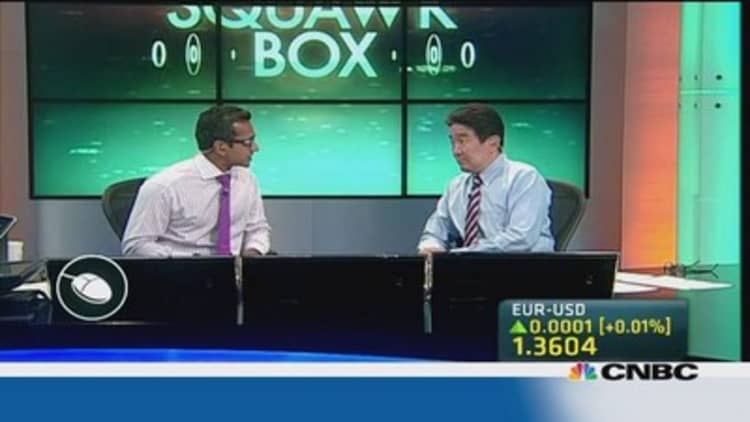
A stinging commentary warning that Singapore is facing an Icelandic-style economic crash has provoked much debate amongst industry commentators and yielded an official response from the Monetary Authority of Singapore.
According to Jesse Colombo, an economist and columnist for Forbes magazine, the wealthy Southeast island state of Singapore is displaying similar characteristics to Iceland in the run up to its spectacular economic collapse in 2008, amid the rapid expansion of its banking sector overseas and an influx on hot money from abroad.
(Read More: When will Singapore roll back property curbs?)
Colombo argues that Singapore is subject to a ballooning credit bubble that is driving economic growth and creating the illusion of prosperity. A bubble he says has been fueled by ultra-low interest rates encouraging explosive growth in mortgage and commercial loan borrowing.
The economist points to a plethora of bubbly characteristics in the Singaporean economy, including a high ratio of household debt to gross domestic product (GDP), sky-high property prices and a potential banking crisis if non-performing loans increase once interest rates normalize.
Singapore's benchmark interest rate is tied to the U.S. Fed Funds' rate and stands at 0.08 percent.
The commentary, published in Forbes on Monday, prompted the Monetary Authority of Singapore (MAS) to respond on Tuesday in a statement denying that Singapore is facing a credit bubble that is putting the country or its banking system at risk of a crisis.
"Serious observers and investors are not in doubt about the country's financial health," the MAS said in a statement.
(Read More: )
The central bank acknowledged that low interest rates have stimulated credit growth and a rise in property prices, but alluded to steps they have taken in recent years to cool property demand and prevent excess leverage.
It also referred to a recent assessment by the International Monetary Fund which showed Singapore's financial system would remain sound under severe stress scenarios, including a sharp increase in interest rates and a steep fall in property prices.
Other economists were less convinced that Singapore faces an economic bubble similar to Iceland's.
(Read More: )
"If this had been written a year to a year-and-a-half ago perhaps this argument would be more credible," Song Seng Wun, regional economist at CIMB Research, told CNBC.
"A lot has happened since, we all know the risks, we saw the queues forming and hoards of people jumping on property launches. Since then, measures have stabilized property prices in most segments," he added, pointing out that household debt-to-GDP ratios are well below the peak of 94 percent over the 2001-2003 period.

Song acknowledged that the normalization of interest rates was a clear risk to the Singaporean economy, but in his view, while some will likely get burned, the majority will not be severely impacted.
"Some will be affected, but most will be fine. I expect an orderly adjustment, to say it is a bubble is stretching it," he added.
Meanwhile, Michael Wan, economist at Credit Suisse's Singapore office, said Colombo has raised a valid point about the unsustainable rate at which credit growth has far outpaced nominal GDP, but noted it was unlikely Singapore would experience a financial crisis stemming from its frothy property sector.
(Read More: Sustainable Singapore: A model to be replicated?)
"As seen in other countries such as the U.S., it's always the strength of the banking system that plays a key role. Singapore's banks are among the strongest in the region," he added.
He also added that Singapore and Iceland have very different macroeconomic fundamentals, which makes them difficult to compare.
"Singapore has a strong current account surplus, while Iceland had a current account deficit during its credit crunch. Singapore's fiscal position and strength is also much stronger compared with Iceland," he said.
Singapore holds a triple-A rating from all major rating agencies and a current account surplus of 17 percent of GDP in the year to September 2013.
— By CNBC's Katie Holliday: Follow her on Twitter @hollidaykatie


